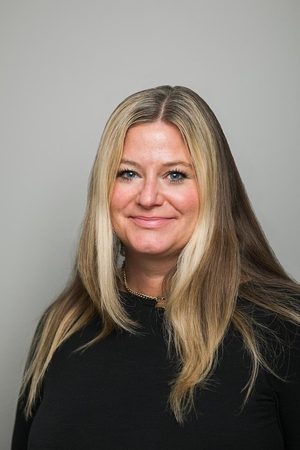Catherine Bell: Three Keys to Awakening Well-Being in Organisations

We are very excited to welcome Catherine Bell at Heart-Mind 2018. Catherine will be part of a special panel moderated by Maria LeRose on well-being at work. Before we get to see her in Langley on February 23, Catherine shares a few thoughts on what it means to awakening well-being in organisations.
The worst decisions and actions have been made when I’ve been tired. I’ve spent the last decade starting and selling a Profit 500 company while being a mother, a wife, a friend, a community member, and an author. I know what it is like to try to “balance” everything. I now prefer the word harmony over balance. Over the last decade I’ve worked with leaders, on executive relationships, and organizations incorporating self care and organizational cultural health into their mantras.
What is self care, relationship care, and organizational health? I will now define what each one of these means and how to promote well-being in organizations with some practical tips to sew into your work day.
1. Awakening Self Care
At the root of self care is your relationship and connection to your awakened self. I am not just meaning physical health. I am intending your personal relationship with your thoughts, your emotions and feelings, and your body. Self care is not about beating yourself up when you are already too busy. It is also about engagement. Over 70% of people are not engaged at work. This is heart-breaking. That is over 70% of people not engaging in self care.
Self care emerges from an intention to stay connected to your heart, mind, and body. Self care flows from understanding your inner compass and north star. Specifically, knowing what you are in service to and what is the contribution you hope to make to the world.
Once you are in touch with your inner compass and aim, you can make positive decisions toward the world you want to create. Self care is highly personal and not one size fits all. We all know when we are coming from an Awakened or Asleep place. We will know our Awake/Asleep line. The asleep state represents when we are acting out of fear, anxiety, anger, or a sense of scarity. The awake state represents when we are acting out of authenticity, love, peace, compassion, and a sense of abundance.
Here are some other brief (not exhaustive) self care tips:
• Develop your self awareness. This includes knowing your gifts, your work ons, and how to silence your inner critic (that voice in your head can take up way too much space and time).
• First thing in the morning, write down the three most important things for you to do that day. Stay focused on those.
• Celebrate the things you have accomplished in a journal or with a colleague or friend over lunch.
• Be aware of the context you are in. Workspace can have a significant impact on how you feel.
• Develop a centering or mindfulness practice. Your presence is your power. And the power of the pause cultivates better leadership.
• Ask for help when you need it, whether it be with cleaning the house or with database entry to keep you focused on your north star.
• Get enough sleep for you.
By awakening self care in a competitive world, we will operate from abundance. Anxiety, fear, control will no longer be in the driver’s seat. By incorporating self care, and relying on it more in times of stress, we can all become our most awakened selves.
2. Awakening Relationships
According to research, the majority of people rate the worst time of the day as the time with their bosses; how long someone stays and how productive they are is determined by the relationship with their immediate supervisor. Yet, the majority of leaders would prefer to spend time independently or in a group than one on one with someone. We need to cultivate the ability to go deep with our relationships where we establish genuine connection with someone.
Relationships are a key element of a life that is meaningful. Everyone needs to be regarded as a human being with dignitiy. We need to cultivate relatedness through mindfulness, spaciousness, and heartfulness in our organizations. Being a colleague is a structure, a role. Beyond structure lies the possibility of real connection which involves an awareness of the field of us. We need to be mindful (open, thoughtful), spacious (the sense that we are independent and respect this), and heartful (kindness and caring) in relationships.
Here are some brief relationship tips:
• Make deliberate times for one on one meetings.
• The key in Awakened Relationships is to focus on improving yourself and being present to the experience.
• Be aware of how your body is speaking for you. Note your body language and what signals it is sending and correct to open posture if appropriate.
• Be aware of triangulation, and know that having a no gossip policy is almost impossible. We are social animals.
• Use ‘I’ language and speak from your three centres: I am feeling, I am thinking, I am doing, and my request for action from you is.
• Listen. Listen. Listen. You can listen by writing down the exact words the person is saying, you can listen by repeating what the person has said in your head.
• Surrender. Instead of expressing your opinion…solicit others' opinions and really listen. Surrender to what is really happening.
• Acknowledge other people’s greatness. Notice what they are doing right…and tell them, in person and write lots of thank you cards!
• Be vulnerable and be willing to be touched emotionally.
• Be open with your heart and mind.
• Allow what people are saying to you to be digested.
• Make it a practice to put away technology before engaging. Focus on doing one thing at a time, giving the person or task your full attention.
• Be non-reactive.
• Cultivate your ABC’s. What awakened attitude you want to bring to the relationship, what boundary, and what sense of connection.
Healthy connected relationships are a secret key to cultivating an environment of well being.
3. Awakening Organizations
The majority of organizations do not survive past nine years. Research has shown that organizations that focus on both cultural and financial metrics perform the best. Most organizations measure only their financial bottom line. How does one create and measure the health of their organizational culture?
How do you create the context of a healthy culture? The journey is an individual company one. One where groups of people decide on their collective fates by intentionally and collectively determining their vision, values, road maps, and committing to living daily from those places. For example, does everyone know the vision of your organization? Are people hired who believe in the corporate values? Are performance evaluations based on how you contributed to the vision and values of the firm? Is the context awakening for all? For example, in the company I co-founded, there was unlimited vacation because one of our core values was trust. We trusted people to do their jobs.
Here are some brief tips to awaken well-being in organizations:
• Develop clear embodied sense of where the organization is headed, a unified vision, that informs meaning in people, in relationships, in transactions, in the choice of suppliers, in choosing employees, in social media strategy, for example.
• Develop a clear understanding of the organization’s values.
• Develop a clear sense of how the organization creates value for its employees, its customers, its competitors, its suppliers, its environment and its owners.
• At a very minimum, ensure that facilities are safe, and ideally have facilities where people can care for themselves and are in the best context to do their jobs (e.g. access to natural light, plants).
• Develop practices that help ensure there is psychological safety for everyone.
• Develop cultural metrics (based on vision and values) that are measured quarterly and reported to the board – for example, measure quality of relationships in the organization, tracking turnover contribution to the community, contribution to the environment, employee happiness, etc.
One of my mentors told me to focus on what is the smallest thing I can do daily. While this may seem like a big list to awaken well-being in organizations, take a moment to choose what is the smallest thing you can do to awaken self care in yourself, relationships, and organizations.
The keys to awaken well-being in organizations lie within ourselves, our relationships, and the organizational context.
Catherine Bell is the founder of BlueEra, an executive search and team transformation company that has been recognized as one of Canada’s Fastest Growing Companies and one of Alberta’s Best Workplaces. She is also the author of the award-winning book The Awakened Company, a landmark reflection that demonstrates that work is not separate from life, and the metrics for success in business need to change if the world is to transcend its current state of crisis.
Catherine Bell will be part of a special panel moderated by Maria LeRose on well-being at work at Heart-Mind 2018. Join her at Heart-Mind 2018 and the two other panel members:
- Joel Solomon, chair of Renewal Funds, Canada’s largest mission venture capital firm, chair of Hollyhock, and co-author of The Clean Money Revolution, a call to action to move trillions of dollars from damaging to regenerative use. In the panel, Solomon will share his views on the cultural context in which our workplaces operate, and will offer practical ideas about how to achieve well-being in the workplace.
- Gail Markin, District Counsellor for Health and Wellness in the Langley School District. Gail will talk about the Langley School District Initiative in shifting the work culture to one that makes adult well-being a priority.






Comments
Post new comment